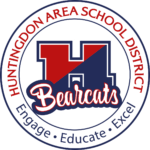by: Kimberlie B. Rieffannacht, Ed.D.
Abraham Joshua Herschel said, “Speech has power. Words do not fade. What starts out as a sound, ends in a deed.” Speech and vocabulary have an impact. They impact daily interactions. They impact attitude. They impact action. They impact heart. They impact life.
Words are the vessel for communication and give humanity the ability to connect on many levels. Each child that enters a school on a given morning is bombarded by words. They may get a “hello” from a staff member, a “what’s new?” from a friend or a question from a teacher. In addition, they have words that may not be spoken, but written. School lobbies are covered with encouraging sayings, school-wide awards, expectations posters and so many other inspirational words to send a message to those entering. All of these words flow into the child and shapes what decisions they make throughout the day and beyond.
In the world of education it is often said that students need one adult to invest in them, to make a difference in their life. We often reflect whether we have been or are that adult for a child. Investing into that child means taking the time to have that conversation with a child, showing the child that they are important through your actions and speaking life into that child through encouraging words. How children are spoken to and how they perceive that speech impacts them a great deal. If a child is spoken to as if they are less than adequate, they will begin to believe they are less than adequate. Likewise, if a child is empowered to succeed, they will begin to think they can accomplish anything.
One of the areas where the Huntingdon Area School District has begun to change their speech and vocabulary is beginning to call our young people learners. What was wrong with the word student? The answer to that question, which I have begun to hear more often, is nothing. There is nothing wrong with the word student. So, that begs the question, then why change it to learners? Simply put, we understand that words have power and we want to instill the idea that all children are learners and they will be learners for all of their days.
Being a student implies a fixed time frame; a child is a student while enrolled in a school. Learner is who they are, they can, and hopefully will, always be learning. Student implies learning has to happen within a school. A learner can learn anytime, anywhere and at any pace. Student implies that they are receiving information and repeating it. A learner is someone who truly learns skills and information and can do something with it. A student is playing the game of school to receive a grade on a report. A learner is interacting with content and producing a solution to a problem or a new approach to a project that has a greater impact in the long run. A student uses what is provided to them, while a learner seeks new and creative resources. A student at times can be a person in a desk getting information. A learner is an individual who is seeking out content, adapting in an ever changing world and finding new ways to approach new and old problems. A student’s mindset is unknown and often limited. A learner has a growth mindset and realizes they may not have it mastered yet, but that is okay!
This shift in vocabulary is to benefit all those working in or out of our educational system. This term learner, can help shape how things are presented in the classroom, how they as young people approach problems and how they interact with the world. A real life example comes to mind. My family has a half moon shaped tent for the little ones at the beach or pool. We just purchased it and had no problem setting it up, however, putting it back in the bag proved to be very difficult with the directions provided. If I were a student I would have probably given up, gotten mad and probably thrown it out, and that was tempting. As a learner, I got out my smart phone, searched Youtube and was able to put my tent away with the help of a video posted by a man from Colorado. This is a very simple example to illustrate that we want to take these young people beyond being students into being learners. We want them to solve problems, learn from mistakes and have perseverance.
Could a student do all of those things listed above? Sure, however, it is more likely that a learner will rise to the occasion. Student is an industrial-age term, where students were instructed the same way, no matter who they were as an individual. We live in an information-age, where learning is individual, constant and cannot stop. We want to prepare each and every Huntingdon Area School District Learner to be ready for this ever changing world. The job market will look radically different when the class of 2030 (our current Kindergarten learners) graduates. We don’t know what those jobs are going to look like, but we do know some of the skills needed to compete for them. These learners need to be adaptable, be able to communicate, be able to think critically, be creative and navigate their future.
Coming back to what Abraham Joshua Herschel said, “Speech has power. Words do not fade. What starts out as a sound, ends in a deed.” We want our young people to be learners, so that is how we are going to refer to them. Those working in the district are not trying to be sneaky or say that student is a “bad” term. We want it to start with the speech and end with them becoming lifelong learners.
